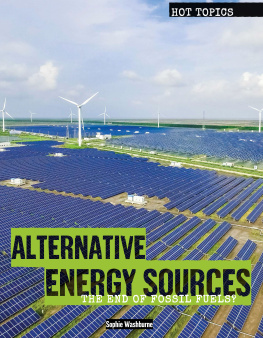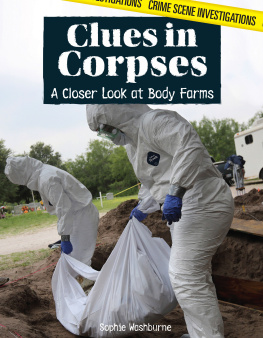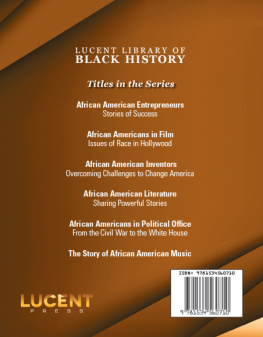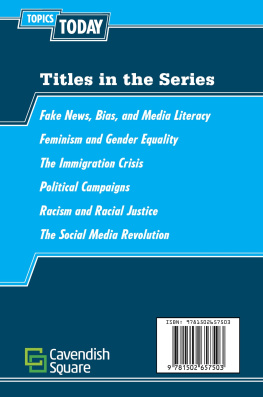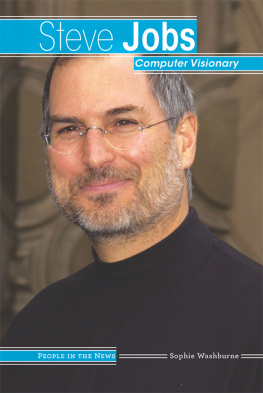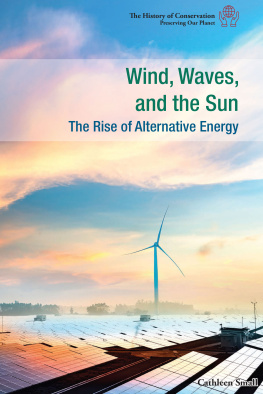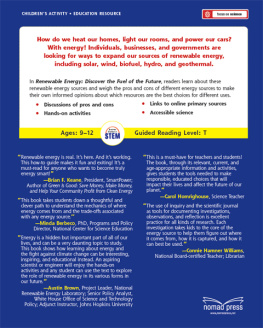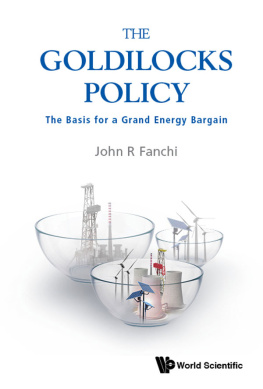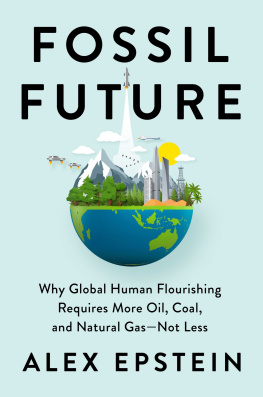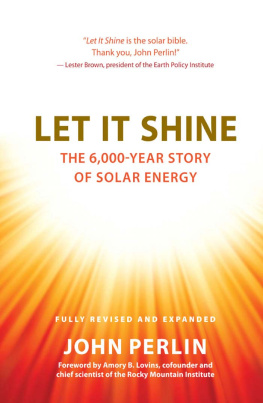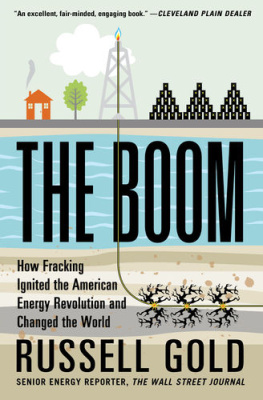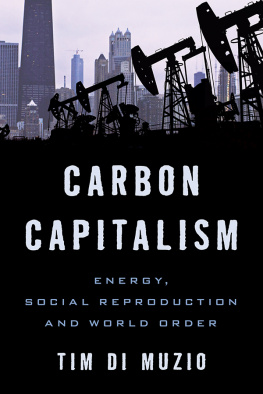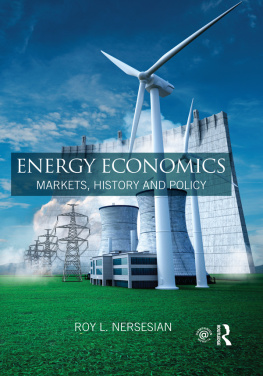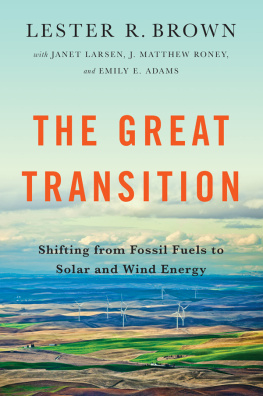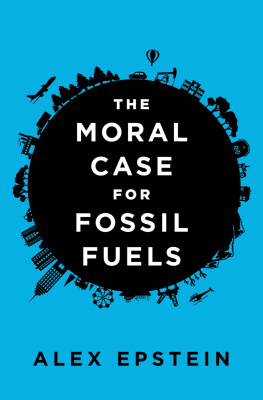- INTRODUCTION
The Problem with Fossil Fuels - CHAPTER 1
Why Is Alternative Energy Necessary? - CHAPTER 2
Rethinking Transportation - CHAPTER 3
The Power of the Sun and Wind - CHAPTER 4
Using the Earths Resources - CHAPTER 5
Using the Earths Resources
Published in 2019 by
Lucent Press, an Imprint of Greenhaven Publishing, LLC
353 3rd Avenue Suite 255
New York, NY 10010
Copyright 2019 Greenhaven Press, a part of Gale, Cengage Learning
Gale and Greenhaven Press are registered trademarks used herein under license.
All new materials copyright 2019 Lucent Press, an Imprint of Greenhaven Publishing, LLC.
All rights reserved. No part of this book may be reproduced in any form without permission in writing from the publisher, except by a reviewer.
Designer: Deanna Paternostro Editor: Jennifer Lombardo
Library of Congress Cataloging-in-Publication Data
Names: Washburne, Sophie, author.
Title: Alternative energy sources : the end of fossil fuels? / Sophie Washburne.
Description: New York : Lucent Press, [2019] | Series: Hot topics | Includes bibliographical references and index.
Identifiers: LCCN 2018019073 (print) | LCCN 2018022416 (ebook) | ISBN 9781534565104 (eBook) | ISBN 9781534565098 (library bound book) | ISBN 9781534565081 (pbk. book)
Subjects: LCSH: Renewable energy sources--Juvenile literature.
Classification: LCC TJ808.2 (ebook) | LCC TJ808.2 .W37 2019 (print) | DDC 333.79/4-dc23
LC record available at https://lccn.loc.gov/2018019073 Printed in the United States of America
CPSIA compliance information: Batch #BW19KL: For further information contact Greenhaven Publishing LLC, New York, New York at 1-844-317-7404.
Please visit our website, www.greenhavenpublishing.com . For a free color catalog of all our high-quality books, call toll free 1-844-317-7404 or fax 1-844-317-7405.
INTRODUCTION
The Problem with Fossil Fuels
CHAPTER 1
Why Is Alternative Energy Necessary?
CHAPTER 2
Rethinking Transportation
CHAPTER 3
The Power of the Sun and Wind
CHAPTER 4
Using the Earths Resources
CHAPTER 5
Using the Earths Resources
FOREWORD
A dolescence is a time when many people begin to take notice of the world around them. News channels, blogs, and talk radio shows are constantly promoting one view or another; very few are unbiased. Young people also hear conflicting information from parents, friends, teachers, and acquaintances. Often, they will hear only one side of an issue or be given flawed information. People who are trying to support a particular viewpoint may cite inaccurate facts and statistics on their blogs, and news programs present many conflicting views of important issues in our society. In a world where it seems everyone has a platform to share their thoughts, it can be difficult to find unbiased, accurate information about important issues.
It is not only facts that are important. In blog posts, in comments on online videos, and on talk shows, people will share opinions that are not necessarily true or false, but can still have a strong impact. For example, many young people struggle with their body image. Seeing or hearing negative comments about particular body types online can have a huge effect on the way someone views themselves and may lead to depression and anxiety. Although it is important not to keep information hidden from young people under the guise of protecting them, it is equally important to offer encouragement on issues that affect their mental health.
The titles in the Hot Topics series provide readers with different viewpoints on important issues in todays society. Many of these issues, such as domestic abuse and free speech rights online, are of immediate concern to young people. This series aims to give readers factual context on these crucial topics in a way that lets them form their own opinions. The facts presented throughout also serve to empower readers to help themselves or support people they know who are struggling with many of the challenges adolescents face today. Although negative viewpoints are not ignored or downplayed, this series allows young people to see that the challenges they face are not insurmountable. Abusive relationships can be ended, the internet can be navigated safely, and the environment can be saved.
Quotes encompassing all viewpoints are presented and cited so readers can trace them back to their original source, verifying for themselves whether the information comes from a reputable place. Additional books and websites are listed, giving readers a starting point from which to continue their own research. Chapter questions encourage discussion, allowing young people to hear and understand their classmates points of view as they further solidify their own. Full-color photographs and enlightening charts provide a deeper understanding of the topics at hand. All of these features augment the informative text, helping young people understand the world they live in and formulate their own opinions concerning the best way they can improve it.
INTRODUCTION
The Problem with Fossil Fuels
A s of 2018, the world gets 81 percent of its energy from fossil fuels such as oil, coal, and natural gas to heat homes, keep cars running, provide electricity, and manufacture products people use every day, such as plastic and clothing. However, this reliance on fossil fuels creates several problems.
One of the biggest problems with fossil fuels is that the earth has a limited supply of them. As fossil fuels become harder to find, the prices will increase, and eventually, many people will not be able to afford to put gas in their cars or heat their homes. Wars have already broken out over these disappearing resources. Eventually, these resources will run out altogether, and if people do not find alternatives before that point, even the richest people will be left with no way to maintain the lifestyle they have grown used to.
Another large problem with fossil fuels is that when they are used to create energy, they are bad for the environment because they release carbon dioxide, which gets trapped in the atmosphere. This has many negative effects, both on the planet and on its inhabitants. The air becomes harder to breathe, so people and animals get sick more often. The temperature of the planet rises, which creates climate change and sets off many other changes: melting ice caps, the deaths of animals that cannot adapt to their changing environment, unexpected weather patterns that create dangerous conditions such as hurricanes and floods, and more.
A third problem is the cost needed to maintain the fossil fuel industry. Digging into the earth for coal, gas, and oil costs a lot of money, and transporting the fuel all over the world also contributes to the high cost consumers must pay. In contrast, renewable energy sources such as wind and water can be found nearly everywhere, so the cost is limited to the buildings or machines that must be built to convert these resources into energy. They do not need to be transported over long distances or dug out of the ground, and they do not damage the environment if they cannot be contained, the way oil spills do.
Next page
